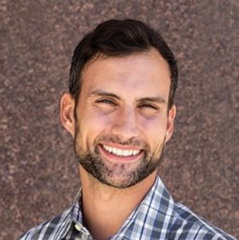Fake News Shelf Life: Content, Reach, and Ephemerality of Hyperpartisan News

Dr. Michael Simeone of Arizona State University will speak about "Fake News Shelf Life," a project that aims to monitor the lifespan of hyperpartisan content that circulates on Twitter in the period leading up to national elections and democratic consultations.
Past research has identified that user-generated, hyperpartisan news content has a remarkably short shelf life, a marker of the perishable nature of digital content at the center of political debates in liberal democracies. Key to the project's monitoring efforts is the storage of social media data as it is collected. From this archive of data, researchers will conduct an analysis workflow that relies on topic models to contrast extant and extinct URL content tweeted in the period leading up to the vote, and during the analysis, they also estimate the size of the retweet cascade that vanished and probe the relationship between content (i.e., hyperpartisan pieces or outright fake news) and content shelf-life.
In summary, researchers seek to establish metrics for the lifespan of fake news and user-generated, hyperpartisan news articles. They expect the availability of this content to be short-lived and therefore hypothesize that the news cycle of hyperpartisan news deviates from the regular news cycle, including the dynamics of retweet cascades triggered by legitimate news pieces featured on Twitter.
Dr. Simeone is a researcher interested in multidisciplinary data science. He currently serves as the director of Data Science and Analytics for ASU Libraries at Arizona State University. He was the founding director of the Nexus Lab for Transdisciplinary Informatics at ASU from 2013-2016. He is also affiliated with the Chainbuilder decision support systems group, as well as the Innovative Software and Data Analysis Division at the National Center for Supercomputing Applications. His research includes multidisciplinary data science, post-cybernetic culture and technology, analysis of human-technology networks, data visualization, and data-driven collaborations that bridge environmental sciences and humanities. Currently, he serves as a Domain Champion for Humanities for the Extreme Science and Engineering Discovery Environment. He received his doctorate in English from the University of Illinois at Urbana-Champaign.